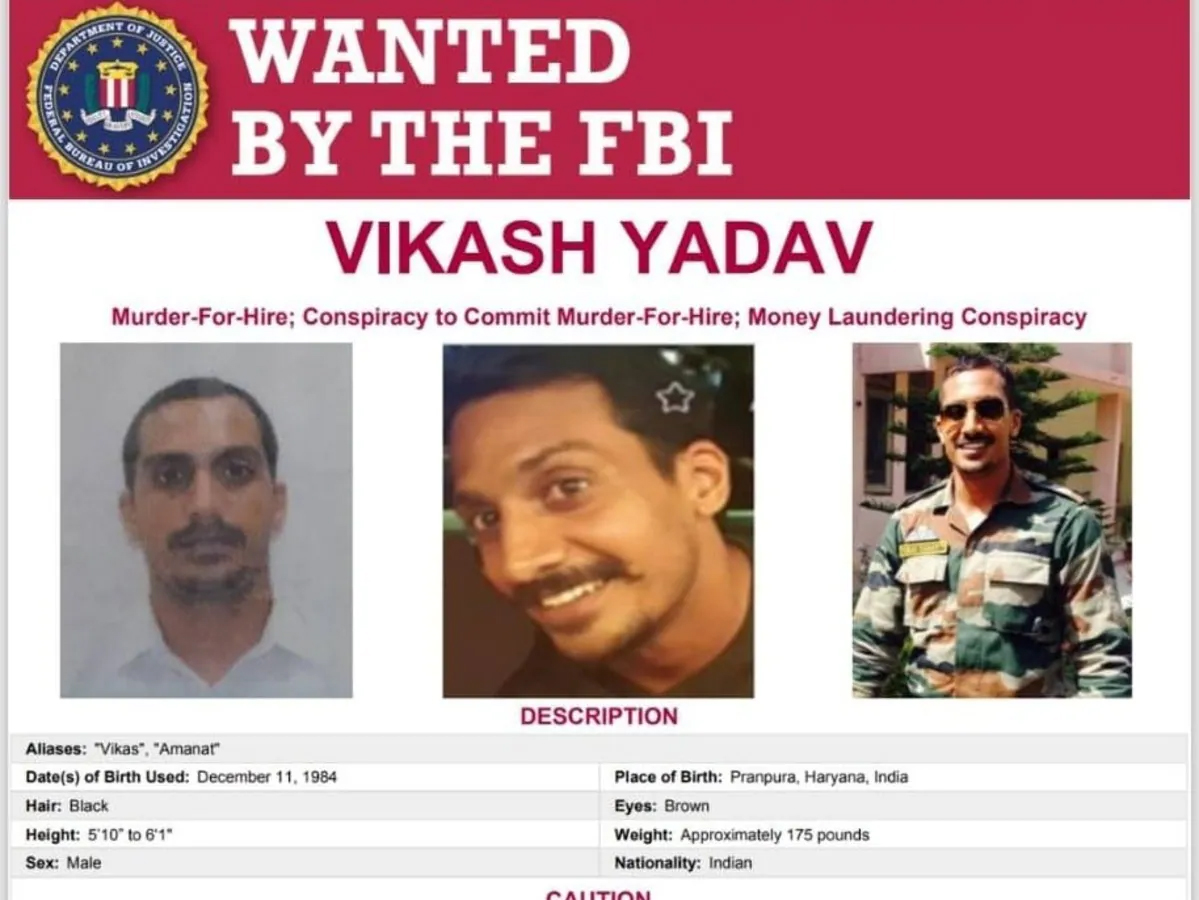India seeks updates on its extradition requests amid U.S. moves against Vikash Yadav and others.
New Delhi: With reports emerging from Washington that the Biden administration will seek the extradition of Vikash Yadav, a former Indian armed forces official named by the U.S. Department of Justice and labelled ‘most wanted’ by the FBI in the alleged plot to kill Khalistani terrorist Gurpatwant Singh Pannun, the Indian government is expected to request an update on its own extradition requests.
These include a significant number of most-wanted individuals either hiding in the U.S.—whose identities and details have been repeatedly shared with U.S. authorities—or those already in U.S. custody, such as Tahawwur Hussain Rana, an accused in the 26/11 Mumbai terror attack, where more than 160 people were killed.
Among the most-wanted terrorists and criminals operating on U.S. soil is Pannun himself, who is also on the National Investigation Agency (NIA) most-wanted list.
Officials said India is not obligated to entertain such extradition requests and will handle any potential U.S. request in the same manner as in previous cases.
The officials further noted that the coordinated actions of the U.S. and Canada were ‘expected,’ ‘not surprising,’ and that they were ‘prepared’ for such measures.
It is believed that the possibility of wanted terrorists operating in Canada, a close ally of the U.S., being ‘pursued’ on the directions of other countries has unsettled the U.S. State Department, which has traditionally maintained a monopoly over such operations on foreign soil.
Significantly, all these developments are unfolding at a time when Indo-U.S. bilateral relations are arguably at their peak, with the U.S. relying on and expecting India to act as its spearhead in countering China.
This is not the first time that the combined efforts of the U.S. deep state have contradicted the policies followed by its political leaders.
In the late 1990s, the Central Intelligence Agency (CIA) and Israel’s Mossad successfully recruited Rabinder Singh, a senior Research and Analysis Wing (R&AW) officer who was working as Joint Secretary before fleeing to the U.S. in May 2004 with the help of the U.S. embassy in Kathmandu. Despite the Indian government’s efforts to extradite him, these attempts were abandoned in 2007 due to a lack of cooperation from the U.S. government. Singh later died in a road accident in 2016, living in poverty.
However, officials pointed out that the difference this time is that U.S. agencies are publicly disclosing sensitive developments through media leaks.

